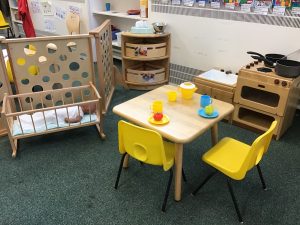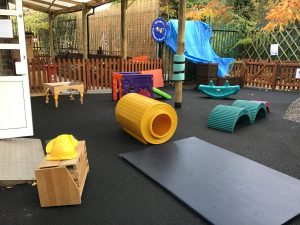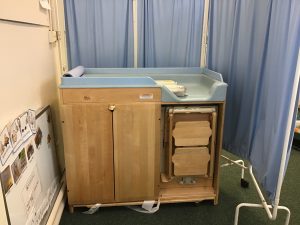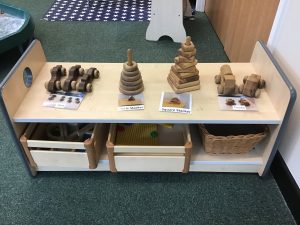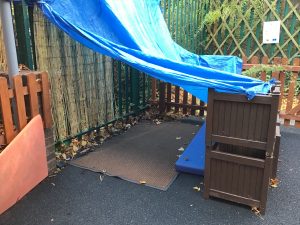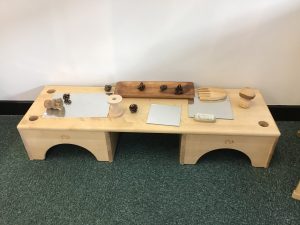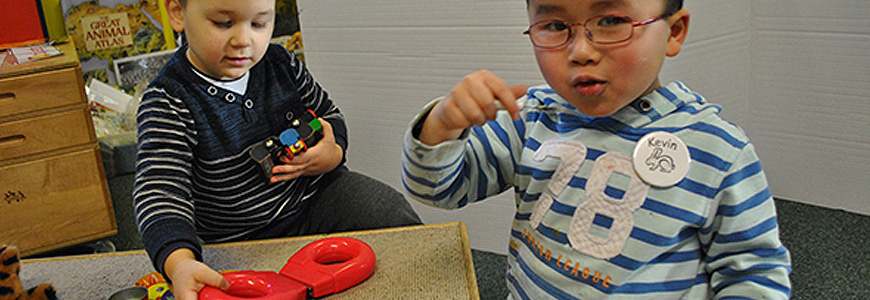
Children eligible for two year old funding start at our nursery school in the term after they are two. They have their own room and outdoor play area in Acorns Room.
Our two year olds can attend for either 5 morning sessions (8.30am-11.30am) or 5 afternoon sessions (12.30pm – 3.30pm) a week. They will move to a 3-4 year old group sometime after their third birthday when they are ready and when there is a space for them.
Our two year olds have a higher staff to child ratio than our three and four year olds with 1 nursery practitioner for every 4 children. The nursery staff observe the children’s interests and schemas and plan activities appropriately, with a qualified teacher overseeing the curriculum. There is a large focus on the prime areas of the Early Years Foundation Stage which are Personal, Social and Emotional Development, Physical Development and Communication and Language with our two year olds.
Follow this link to see if your child is eligible for a two year old funded place: https://www.cloudforedu.org.uk/oeye/birmingham
Watch the film below to hear from some parents in Birmingham about how their children starting nursery at the age of 2 benefitted them.
Two year old progress check
How your child plays, learns, speaks and acts offers important clues about your child’s development. Development milestones are things most children can do by certain ages. At Featherstone Nursery School we aim to undertake development checks on all our two year old children at the end of their first term with us.
It is a statutory requirement of the Early Years Foundation Stage (EYFS) for early years’ settings to supply parents and carers with a short written summary of their child’s development in the three prime learning and development areas of the EYFS: Personal, Social and Emotional Development, Physical Development and Communication and Language. This needs to be completed when a child is aged between 24-36 months.
The aims of the progress check are to:
- Review a child’s development in the three prime areas of the EYFS.
- Share this information with parents at an agreed time to ensure they have a clear picture of their child’s development.
- Enable us to understand the child’s needs and plan activities and experiences to meet them whilst they are at nursery.
- Enable parents to understand their child’s needs and enhance development at home, with support of the setting.
- Note areas where the child is progressing well and identify any areas where progress is less than expected.
- Describe actions the setting intends to take to address any developmental concerns, including working with other professionals where appropriate.
The progress check will:
- Be completed by a practitioner who knows the child well and works directly with them in nursery. This will normally be the child’s key worker.
- Arise from the ongoing observational assessment carried out as part of everyday practice in the nursery.
- Be based on skills, knowledge, understanding and behaviour that the child demonstrates consistently and independently.
- Take account of the views and contributions of parents / carers and the child if appropriate.
- Take into account the views of other practitioners and where relevant, other professionals working with the child.
Featherstone Nursery School intends that the progress check will:
- Be clear and easy to read, avoiding unfamiliar jargon or terminology
- Present a truthful yet sensitive reflection of what the child can do and their achievements to date.
- Identify areas where the child is progressing at a slower pace than expected.
- Recognise parents’ in-depth knowledge of their child by incorporating their observations and comments
- Explain how their child’s learning and development will be supported in the setting.
- Be at a time agreed in advance with the parents / carers
Information sharing
Featherstone Nursery School will seek the consent of parents to share information from the progress check directly with relevant professionals.
